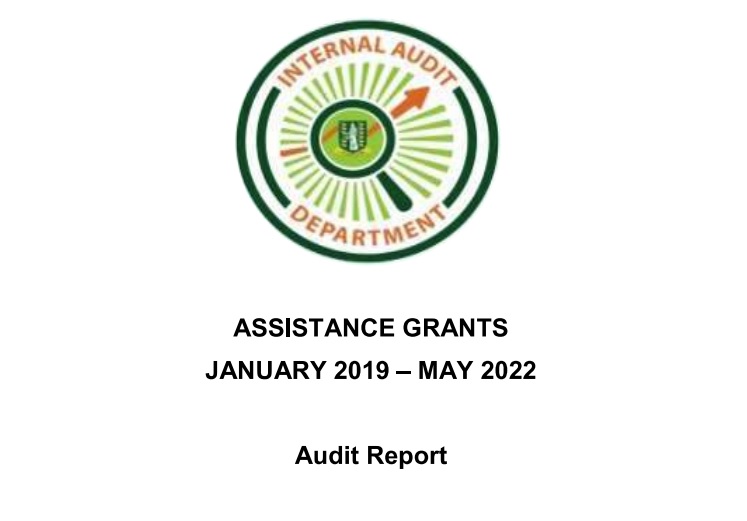An audit into Assistance Grants Programmes operated by the Government of the Virgin Islands has led the Chief Audit Executive to conclude that “the operations of these programmes, for the most, part did not serve to resolve any socio-economic deficiencies in our communities as the programmes were largely utilised to satisfy individual wants and desires.”
This was one of the conclusions presented in a document entitled “Assistance Grants January 2019 – May 2022 Audit Report”, which detailed an audit conducted by the Internal Audit Department in association with the Office of the Auditor General.
Within the scope of this audit, the Government of the Virgin Islands awarded a total of $22,939,333.07 in Assistance Grants across 3 Ministries (Ministry of Communications and Works, Ministry of Education and Premier’s Office), and the House of Assembly.
According to that document, auditors found that the Assistance Grant Programmes lacked basic tenets of good governance such as accountability, equity and transparency.
“All the programmes lacked clearly defined policy objectives and rules that would guide their functioning. These programmes operated outside any financial rules for public expenditure on the fallacious belief that Elected Members exercised unconstrained authority over these funds”, it said.
This audit was conducted in accordance with Recommendation B 12 of the Commission of Inquiry Report.
It sought to achieve the following objectives:
- Assess the level of due diligence conducted in awarding the grants and determine whether grants were awarded using transparent and equitable process.
- To determine whether there was any abuse of discretionary authority in awarding grants.
- To determine whether grants programmes were abused by applicants across programmes.
While it was acknowledged that there is some validity in the argument that elected officials are “more in tune with the needs of their constituency”, and would require the programmes to be operated at that level, auditors concluded that this knowledge would be better utilised to “inform and formulate policy to meet those needs in a holistic and transparent manner.”
The report further stated, “when public funds are expended based on the most opaque of circumstances, discretionary decisions of political operative, without rules and limits and without consequence, it is near impossible to separate political and altruistic motives.”
A final assessment found that “there was an absence of due diligence in awarding grants under these programmes and the process used was neither transparent nor equitable”.
Auditors also stated that there were indications of abuse of this discretionary authority in awarding grants based on best practice, as well as abuse by applicants who utilised those deficiencies in the process for self benefit.
“These programmes, as were operated, were an affront to good governance and an abuse of the Public purse”, the report stated.


